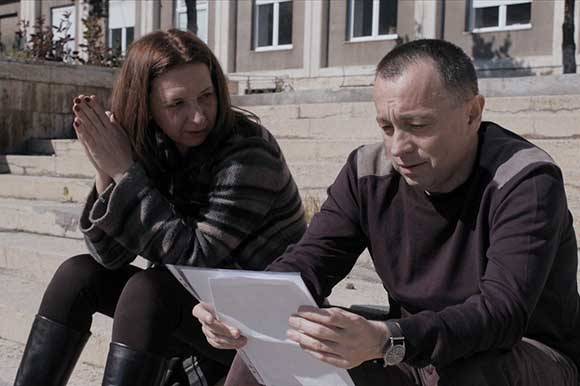Although officially re-launched in January 2020, when it was taken over by the Ministry of Economy, the cash rebate scheme didn't function in 2020, and at the end of 2020 most of the projects already shot since the scheme opened in 2018 were waiting for the rebate.
On the bright side, 2020 was the best year for Romanian documentaries, with Alexander Nanau's collective / colectiv leading the pack. collective is Romania's bid at the 2021 Academy Awards in the Best International Film category, and it was also submitted to the Best Documentary Feature category. collective was also awarded 2020 European Documentary at the European Film Awards.
For the first time, two Romanian documentaries were nominated at the European Film Awards in the European Documentary category. The second nominee, Acasă, My Home by Radu Ciorniciuc, received the Cinematography Award in the World Cinema Documentary competition at the Sundance Film Festival 2020.
PRODUCTION
In March 2020 Romanian authorities decided to shut down all events (public or private) with over 100 persons in closed premises and also to shut down cinemas. Film and audiovisual production resumed on 30 May 2020 and few producers were able to re-schedule their shootings. Most of them are supported by the Romanian Film Centre (CNC).
Among them is Ada Solomon, who is producing two feature films shot in 2020 – Radu Jude's new feature film Bad Luck Banging or Loony Porn (aka Sleepwalkers) and Ștefan Constantinescu's debut feature Man-Dog / Om-câine.
Bad Luck Banging or Loony Porn, which evaluates the disaster caused by an amateur porno clip that a young secondary-school teacher posts on the internet, is a coproduction between Romania's 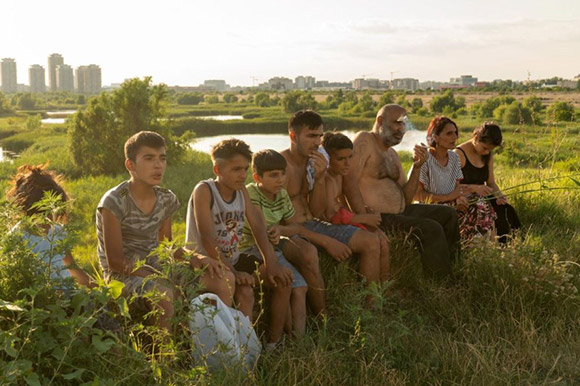 microFILM and Luxembourg's Paul Thiltges Distributions, Czech Republic's endorfilm and Croatia's Kinorama.
microFILM and Luxembourg's Paul Thiltges Distributions, Czech Republic's endorfilm and Croatia's Kinorama.
The film was shot in August and September 2020, and the script as well as the production have been changed to accommodate the pandemic restrictions.
Romanian-born Sweden-based film director and visual artist Ștefan Constantinescu started the shooting on Man-Dog on 10 August 2020.
The film starring Bogdan Dumitrache and Ofelia Popii is a story about love and exile happening during the COVID-19 pandemic. Man-Dog / Om-câine is produced by microFILM (Romania), KLAS Film (Bulgaria), Doppelganger (Sweden) and Pandora Film (Germany), in association with nomada.solo (Romania) and Visual Walkabout (Romania), and in coproduction with HiFilm Productions (Romania), Film i Väst (Sweden), Shoot&Post (Sweden), Auditory (Sweden).
Radu Muntean shot his seventh feature film Întregalde in November-December 2020. Written by the same team who wrote all Muntean's films (Razvan Radulescu, Alex Baciu, Radu Muntean), the film is produced again by Multi Media Est and follows three humanitarians whose mission in a remote village in the Apuseni Mountains goes astray.
Anca Damian was also in production in 2020, with her new long animated film The Island / Insula, produced by herself through Aparte Film in coproduction with France's Komadoli Amopix and Belgium's Take Five and Minds Meet.
In 2020 Gabriel Achim shot his third feature film, Snowing Darkness / Uneori ninge cu zapada, alteori cu intuneric, a Romanian coproduction between Mandragora and Iadasarecasa.
Daniel Sandu finished shooting The Father Who Moves Mountains / Tata mută munții at the beginning of 2020. Sandu's sophomore feature is produced by Cristian Mungiu's company Mobra Films in coproduction with Filmgate Films and Film i Vast (Sweden), and it is currently in postproduction.
Emanuel Pârvu shot his sophomore feature Mikado / Marocco from 26 July to 23 August 2020. The main character of the film is played by Șerban Pavlu, who also starred in Pârvu's debut feature Meda or The Not So Bright Side of Things / Meda sau Partea nu prea fericită a lucrurilor (FamArt, 2017), which won the Hearts of Sarajevo for Best Director and Best Actor. The film is produced FamArt Association in coproduction with Bogdan George Apetri as well as with Natura Party.
Romanian director Octav Chelaru finished shooting his debut feature Balaur on 10 September 2020. The film was shot in Romania as a Romanian/German/Serbian coproduction between Romania's deFilm, Germany's 42film and Serbia's EED Productions. The film follows a 38-year-old religion teacher and wife of the local priest, who sleeps with a 16- year-old problem student.
Radu Ciorniciuc was in production with his second documentary in 2020. Tata, which is co-directed with Lina Vdovîi (the writer from Acasă My Home) and produced again by Romania's Manifest Film. This personal story of Lina Vdovîi, who is trying to reconnect with her father, is set for release in 2023.
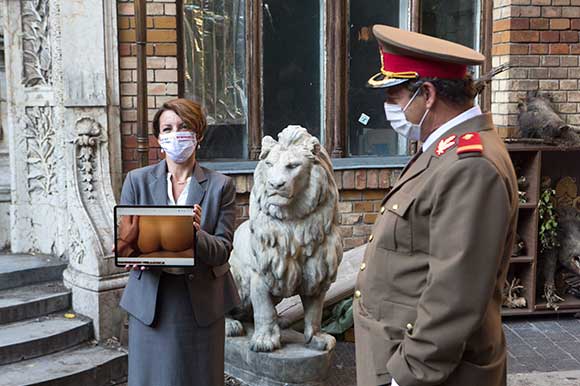 The DoP/producer/director Liviu Mărghidan shot his third feature film as a director from 1 July to 15 August 2020. Refuge / Refugiu (working title) is an adventure drama whose shooting took place at an altitude ranging from 1,600 to 2,000 metres with two children in the cast. The film follows a couple of middle-class divorcees who decide to go on a mountain climb together with their two children, and it is produced by Scharf Film Production (a company founded by Liviu Mărghidan).
The DoP/producer/director Liviu Mărghidan shot his third feature film as a director from 1 July to 15 August 2020. Refuge / Refugiu (working title) is an adventure drama whose shooting took place at an altitude ranging from 1,600 to 2,000 metres with two children in the cast. The film follows a couple of middle-class divorcees who decide to go on a mountain climb together with their two children, and it is produced by Scharf Film Production (a company founded by Liviu Mărghidan).
Writer/director Ioana Mischie was in production with Tangible Utopias in 2020. This virtual reality project was selected for Cannes XR, which took place 22 – 26 June 2020 online. The project is produced by Storyscapes, a Romanian association focusing on transmedia concepts, in collaboration with Studioset and See Three.
In 2020 Andrei Dăscălescu worked on the editing of on his new project. Videograms of a Pandemic / Videograme dintr-o pandemie is documenting the life of people during the COVID-19 isolation through video-diaries. Dăscălescu is producing through Filmlab.
Among the films in postproduction in 2020 was Andrei Hutuleac's debut feature #dogpoopgirl, a Romanian coproduction between DaKino Productions and Diud Films, which was shot at the end of 2019.
Few international productions were shot in Romania in 2020 after the ease of restrictions.
Among the films in postproduction in 2020 was Andrei Hutuleac's debut feature #dogpoopgirl, a Romanian coproduction between DaKino Productions and Diud Films, which was shot at the end of 2019.
The eight-part series Around the World in 80 Days, a European coproduction directed by Steve Barron and starring David Tennant, started shooting in Romania in October 2020 with Castel Film Studio providing services.
Around the World in 80 Days is a Slim Film + Television and Federation coproduction for the European Alliance formed by France Télévisions, ZDF and RAI, with additional coproduction partners, Peu Communications in South Africa, MASTERPIECE in the USA, Be-FILMS and RTBF in Belgium and associate producer Daro Film. The filming in Romania as well as in South Africa spanned across five months.
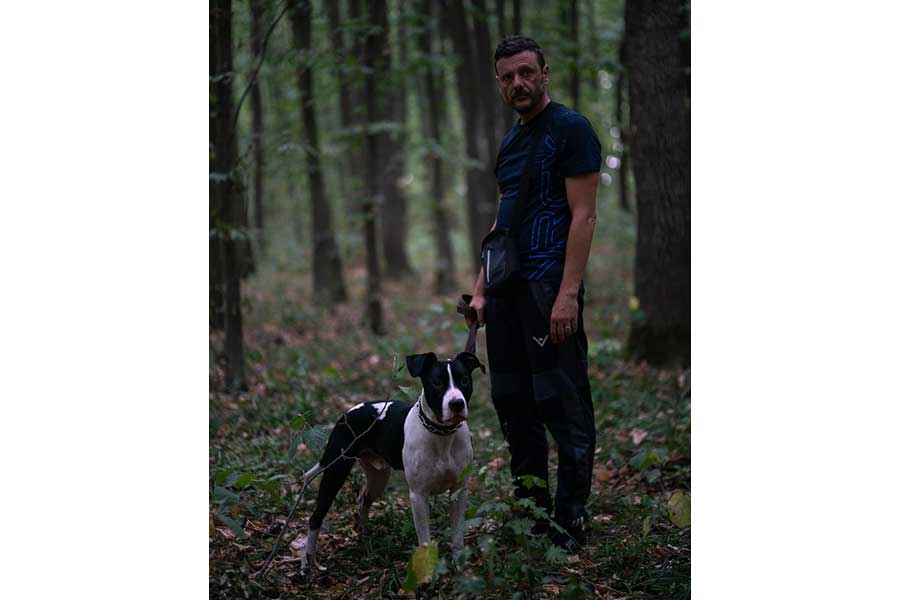 The Greek/French/Romanian coproduction Broadway directed by Christos Massalas completed filming in Romania on 2 November 2020. Athens-based Neda Film is producing in coproduction with France's Blue Monday Productions and Romania's Digital Cube. This debut feature participated in the 2019 Cannes Cinéfondation L'Atelier. The film was shot in Athens starting in July 2020 and the postproduction takes place in Romania at Avanpost, as well as in France.
The Greek/French/Romanian coproduction Broadway directed by Christos Massalas completed filming in Romania on 2 November 2020. Athens-based Neda Film is producing in coproduction with France's Blue Monday Productions and Romania's Digital Cube. This debut feature participated in the 2019 Cannes Cinéfondation L'Atelier. The film was shot in Athens starting in July 2020 and the postproduction takes place in Romania at Avanpost, as well as in France.
COVID GOVERNMENT SUPPORT
In March 2020 more than 12,200 independent cultural workers, including film workers (directors, actors, DoPs, editors, etc.) signed an appeal to the Government and several ministries, asking for measures of support in the difficult situation caused by the COVID-19 pandemic.
The professionals called for measures of social protection including, among others, health insurance till 31 December 2020 for those who didn't have it; lump sums for independent artists, PFAs and LLCs facing difficulties, from three to six months; temporary exemption from taxes on revenues from copyright contracts and service contracts for cultural activities till 31 December 2020.
Cultural workers were also asking the Government, the Ministry of Culture and the Ministry of Labour and Social Protection to adopt the Artist Status, which would approve the cultural workers’ activity, so that they could benefit from health insurance, pensions and welfare.
On 26 March 2020 the Romanian Government decided to compensate with 75% from the national gross salary the persons who support themselves exclusively from copyright and related rights, as well as the authorised persons, liberal professions, individual and family businesses and persons remunerated through service contracts.
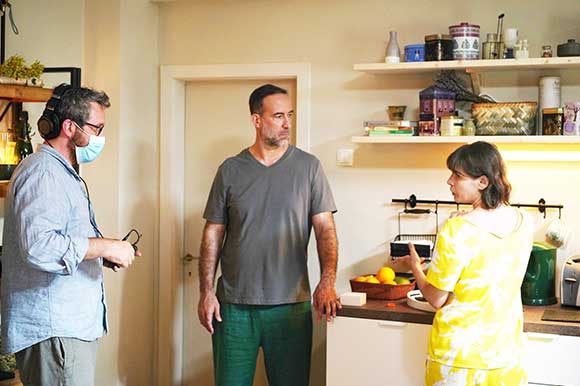 In November 2020, the Romanian Government announced its intention to distribute 100 m EUR for the culture sector, including cinema, with the requirement that all the applicants should register by 9 December 2020 in the Cultural Sector Register, the creative industries map launched by the Ministry of Culture in 2020.
In November 2020, the Romanian Government announced its intention to distribute 100 m EUR for the culture sector, including cinema, with the requirement that all the applicants should register by 9 December 2020 in the Cultural Sector Register, the creative industries map launched by the Ministry of Culture in 2020.
Another requirement was that the applicants (companies which were active in the last two years, but not independent or freelance artists) should add 20 percent to the 80 percent provided by the grant to their application projects.
Micro-grants of 4,000 EUR for entities that didn't sell tickets for their activities in 2019, as well as variable grants varying from 7 to 50 percent from the gross revenues from the tickets sold in 2019, were available. No grant should exceed 800,000 EUR.
The grants were available for performing arts, visual arts including cinema, audiovisual, publishing, heritage and cultural education. The grants scheme is planned to be operational at the beginning of 2021.
In April 2020, the Romanian Film Development Association (ADFR) launched a programme supporting Romanian independent emerging film artists affected by the COVID-19 pandemic. #ADFR Survival allocated micro-grants totalling 3,000 EUR to emerging talents of 23 to 35 years from the camera, directing, screenwriting, art direction and costume departments, as well as independent actors aged 22-40 with at least one film credit in the last 12 months. Three micro-grants of 500 EUR each were allotted in both cases.
DISTRIBUTION
A total of 61 films, including 12 domestic productions, were released in cinemas in 2020, compared to 194 films released in 2019, of which 31 were domestic films (including minority coproductions).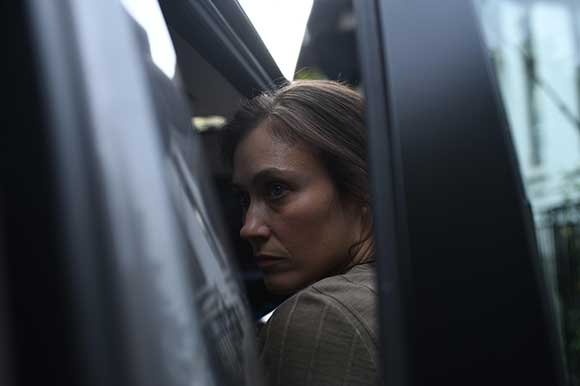
The 12 domestic productions theatrically released in 2020 are: Miami Bici directed by Jesús del Cerro, produced by Studio Indie Productions and Watch Me Productions, and distributed by Vertical Entertainment, the documentary collective / colectiv directed by Alexander Nanau, produced by Alexander Nanau Production in coproduction with Samsa Film, HBO Europe, and distributed by Bad Unicorn, the documentary 30 Years and 15 minutes / 30 de ani si 15 minute directed by Ștefan Mandachi, produced by Mandachi Films and distributed by Follow Art Distribution, Legacy / Urma directed by Dorian Boguță, produced by Hai-Film Entertainment, Mandragora, Actoriedefilm.ro, and distributed by Transilvania Film, Uppercase Print / Tipografic majuscul directed by Radu Jude, produced by microFILM in coproduction with the Romanian Television (TVR), Hi Film Productions and in association with nomada.solo, and released by Hi Film Productions, the documentary Superhombre directed by Mircea Gherase and Lucian Mircu, produced by Asociația Marele Ecran and distributed by Domestic Film, the documentary Acasă, My Home directed by Radu Ciorniciuc, produced by Romania’s Manifest Film in coproduction with HBO Europe, Finland's Corso Film and Germany's Kino Company, and distributed by Manifest Film, the documentary Teach / Profu' directed by Alex Brendea, produced by Luna Film and distributed by Transilvania Film, Ivana the Terrible / Ivana cea Groaznică directed by Ivana Mladenovic, produced by Produced by microFILM, Dunav 84 in coproduction with the Romanian Television, nomada.solo, Verde Stop Arena, and distributed by HiFilm Productions, the documentary Everything Will Not Be Fine / Totul nu va fi bine directed by Adrian Pârvu and Helena Maksyom, produced by Hi Film Productions in coproduction with microFILM, Tato Film, and distributed by microFILM, 5 Minutes Too Late / 5 minute directed by Dan Chișu, produced by Domestic Film, DaKINO Production, and distributed by Domestic Film, and Love 2. America / Dragoste 2. America directed by Florin Șerban, produced by Fantascope Films, The East Company, Correct Media, and distributed by Fantascope Films.
Six from the above-mentioned titles were released before the pandemic restrictions.
The overall chart is topped by Miami Bici with 552,238 admissions and 2.38 m EUR / 11,603,217 RON gross, followed by Bad Boys for Life with 419,184 admissions and 1.9 m EUR / 9,381,164 RON gross, and Dolittle with 129,695 admissions and 564,021 EUR / 2,748,027 RON gross (according to Cinemagia.ro).
 In the Romanian chart, Miami Bici is followed by collective with 22,503 admissions and 76,427 EUR / 372.369 RON gross, and by 30 Years and 15 minutes, which totalled 4,456 admissions and 17,070 EUR / 83,170 RON since its theatrical release on 2 October 2020.
In the Romanian chart, Miami Bici is followed by collective with 22,503 admissions and 76,427 EUR / 372.369 RON gross, and by 30 Years and 15 minutes, which totalled 4,456 admissions and 17,070 EUR / 83,170 RON since its theatrical release on 2 October 2020.
Jesús del Cerro’s Miami Bici, a comedy about two Romanians looking for fun but finding trouble in Miami, Florida, had 368,303 admissions and cashed in 1,593,451 EUR / 7,663,883 RON in two weeks, according to Cinemagia.ro. The film was released on 21 February 2020 by Vertical Entertainment, a leading company that usually distributes Hollywood titles.
Alexander Nanau's documentary collective / colectiv, which was released on 28 February 2020, had 15,366 admissions and cashed in 54,326 EUR / 261,289 RON gross in its first weekend (including several avant-premieres), but the closing of cinemas prevented it to be seen by a larger audience. It was released on HBO afterwards.
Other titles have postponed their release from 2020 to 2021. The list includes Cristi Puiu's Malmkrog, which was produced by Romania’s Mandragora in coproduction with iadasarecasa (Romania), SENSE Production (Serbia), Cinnamon Films (Serbia), Film i Väst (Sweden), Doppelganger (Sweden), Bord Cadre Films (Switzerland), Produkcija 2006 Sarajevo (Bosnia and Herzegovina) and Sisters and Brothers Mitevski (North Macedonia);So, What’s Freedom? / Și atunci... ce e libertatea?, the sophomore feature by the Romanian-born US based writer/director Andrei Zincă, which was produced by Romania’s Tică Trade and Andrei Zincă through the US company Double 4; And They May Be Still Alive Today / Și poate mai trăiesc și azi, the sophomore feature by Tudor Cristian Jurgiu, which was produced by Romania’s Libra Film Productions in coproduction with the Greek Graal SA; WOOD, an environmental documentary thriller about illegal logging in Romania, Peru, Russia and China, directed by Monica Lăzurean-Gorgan, Michaela Kirst and Ebba Sinzinger, and produced by 4 Proof Film in coproduction with Austria’s WildArt Film and Germany’s Film Tank; as well as Begin / Început, the sophomore feature by Răzvan Săvescu, which was produced by Scharf Film Production.
Alexander Nanau's acclaimed documentary collective was released in US theatres and on-demand by Magnolia Pictures and Participant on 20 November 2020. After its world premiere in the Official Selection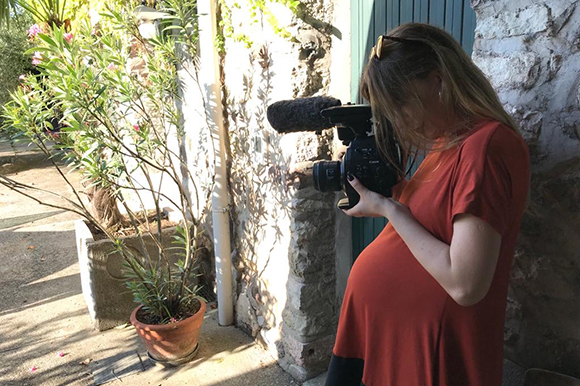 – Out of Competition at the Venice International Film Festival of the Biennale di Venezia 2019, collective was sold by Cinephile to North America, France, the UK, the Netherlands, Switzerland, Germany, Australia and New Zealand.
– Out of Competition at the Venice International Film Festival of the Biennale di Venezia 2019, collective was sold by Cinephile to North America, France, the UK, the Netherlands, Switzerland, Germany, Australia and New Zealand.
Acasă My Home, the first documentary by the Romanian journalist turned filmmaker Radu Ciorniciuc, was acquired for North America by Zeitgeist Films and Kino Lorber. The film was produced by Romania’s Manifest Film in coproduction with HBO Europe, Corso Film (Finland) and Kino Company (Germany).
The accolades received by Acasă My Home include the Special Jury Award in the International Competition of the Thessaloniki Documentary FF, the Viktor Award at the Munich International Documentary Festival – DOK.Fest, and the Golden Horn in the Best Feature-Length Documentary competition of the Krakow FF.
In February 2020 Cristi Puiu was awarded Best Director in the new section of the Berlinale, Encounters, for Malmkrog. The film was released in French cinemas on 2 July 2020. Shellac is handling the sales.
Other awards received by Romanian films in 2020 include a Special Mention for WOOD at the Zürich FF, two Best Actor prizes for Conrad Mericoffer in Poppy Field / Câmpul de maci at the Torino FF and Gijón IFF. The debut feature by Eugen Jebeleanu was produced by ICON production. Its release in Romania was also postponed for 2021.
Holy Father / Tatăl nostru, the new documentary by Andrei Dăscălescu, received the Special Jury Prize at the 2020 Sarajevo FF.
The Romanian minority coproduction Servants / Služobníci directed by Ivan Ostrochovský received the Ribera del Duero and Best Director awards at the Valladolid IFF, a Special Mention at the Odesa IFF, the Georges Delerue Prize, Best Original Music and Best Sound awards at the Film Fest Gent, as well as Best Director and Best Art Direction awards at Saint-Jean-de-Luz IFF. Servants is a coproduction 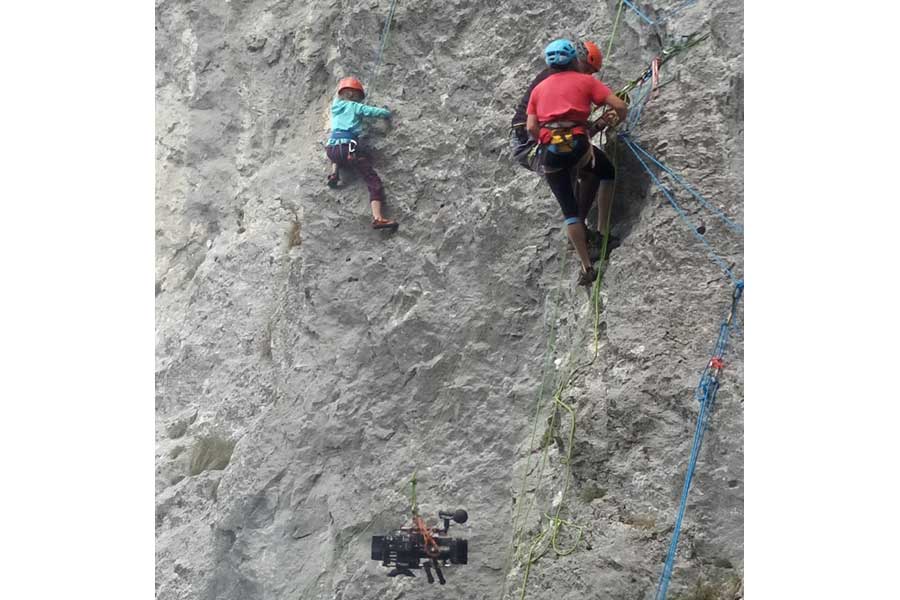 between Slovakia, Romania, the Czech Republic and Ireland, and it was produced by Slovakia's Punkchart films in coproduction with Point Film, Radio and Television of Slovakia, Negativ, Film and Music Entertainment, Libra Film Productions, Hai Hui Entertainment, sentimentalfilm.
between Slovakia, Romania, the Czech Republic and Ireland, and it was produced by Slovakia's Punkchart films in coproduction with Point Film, Radio and Television of Slovakia, Negativ, Film and Music Entertainment, Libra Film Productions, Hai Hui Entertainment, sentimentalfilm.
Cecília Felméri's Spiral, a Hungarian/Romanian coproduction starring Golden Bear winner protagonists Alexandra Borbély and Bogdan Dumitrache, alongside Diána Kiss Magdolna, was awarded the Special Jury Prize (ex-aequo) at the 2020 Thessaloniki IFF in the Meet the Neighbors competition, as well as the Jury Special Mention in the Competition 1-2 of the Warsaw IFF. Spiral was produced by Hungary’s Inforg M&M Film in coproduction with Hungary’s FocusFox Studio and Romania’s Hai-Hui Entertainment.
The Romanian web documentary Unquiet Voices was nominated for the 24th Webby Awards. The participatory documentary was directed by Ioana Mischie, written by Roxana Niță and Adina Stănescu, and produced by Centrade Cheil and STUDIOSET. The web-doc had previously been awarded in international competitions including Golden Drum (two bronze medals), Webstock (Best Video Use), and nominated for the Cannes Lions in three categories.
Corneliu Porumboiu’s The Whistlers / La Gomera received 10 awards including Best Film and Best Director at the 14th Gopo Awards. The first open-air Gopo Awards gala was hosted at the end of June 2020. It had been previously scheduled for 24 March 2020 but was postponed because of the COVID-19 pandemic.
The Whistlers also received the Grand Prix and the Romanian Filmmakers Union (UCIN) Trophy at the 48th edition of the UCIN Gala, as well as the award for Best Film in 2019 from the Romanian Critics Association, which was announced during the same event in September 2020.
 The most important distributors in Romania, on the basis of first time released feature films, are: Vertical Entertainment, Ro-Image 2000, InterComFilm Distribution, Independența Film, Cine Europa, Odeon Cineplex, Forum Film Romania, Transilvania Film, Micro Film, Voodoo Films.
The most important distributors in Romania, on the basis of first time released feature films, are: Vertical Entertainment, Ro-Image 2000, InterComFilm Distribution, Independența Film, Cine Europa, Odeon Cineplex, Forum Film Romania, Transilvania Film, Micro Film, Voodoo Films.
Other distributors are Bad Unicorn, Macondo, BML Music Entertainment and Clorofilm.
Several production companies also have a distribution branch: Mandragora, Parada Film, Zazu Film, Oblique Media Film, Abis Studio.
VOD PLATFORMS AND ONLINE DISTRIBUTION
While most of the festivals went online or had hybrid editions throughout the year, film distributors such as Independența Film and Bad Unicorn chose to distribute their films online (Independența Film had already been distributing films on Vimeo for some years).
The quarantine inspired filmmakers and actors to create pandemic stories for the online distribution. Launched on 27 March 2020, the pilot of the first Romanian sitcom about COVID-19, Discutabil gathered more than 80,000 viewers on Facebook and YouTube in approximately two weeks. Director Vlad Zamfirescu, scriptwriter Alexandru Popa and producer Cristina Dobrițoiu (ATIC pictures) made seven episodes afterwards.
The Romanian COVID pandemic feature film Nine Stories of Love and Hate in Isolation / Nouă povești de dragoste și ură in izolare by Dan Chișu, who produced it through DaKINO Production, had 15,000 viewers at its online premiere on 10 May 2020. The number of viewers reached approximately 15,000 on YouTube and approximately 10,000 on Facebook within two days.
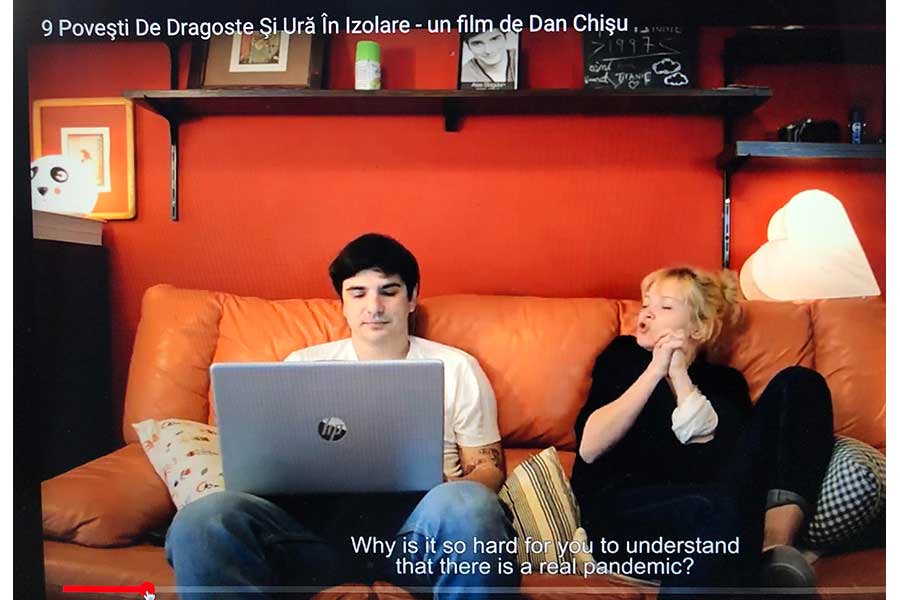 The acclaimed writer/director Radu Jude also made a short film inspired by the pandemic. Autoportret was made at the request of Arte/ZDF for goEast FF in Wiesbaden and is available on Vimeo.
The acclaimed writer/director Radu Jude also made a short film inspired by the pandemic. Autoportret was made at the request of Arte/ZDF for goEast FF in Wiesbaden and is available on Vimeo.
At the end of April 2020 the Transilvania IFF announced its plans to expand its streaming platform TIFF Unlimited, which had been launched during its past edition in June 2019 as the only product of its kind in Eastern Europe. The platform saw an increase in subscription by over 40% in March 2020, becoming an important alternative for the currently quarantined audience in Romania.
The 24th edition of the European Film Festival took place online and a collection of 18 films made by Romanian directors in isolation and presented during the festival under the title Cinem@casa / Cinem@Home were also made available later on TIFF Unlimited.
Some of these films, which were directed by David Schwartz, Vlad Petri, Teona Galgotiu, Laura Pop, Andra Tarara, Alina Manolache and Alexandru Solomon, were put together in a portmanteau project Journey around the home in 60 Days / Călătorie în jurul casei în 60 de zile, which was selected for the Jihlava IDFF.
In November 2020 the project Dislocat. Home Away was launched on Facebook and Instagram. The project was initiated by Gabriel Sandu and it was shot in Bucharest and London in a format accustomed for smartphones. Dislocat. Home Away follows an actress (Edith Alibec), who is isolated in Bucharest by the travel restrictions and tries to overcome the isolation by talking online with her friends.
EXHIBITION AND BOX OFFICE
The box office fell from 1.25 m EUR in the week of 2-8 March 2020 to 276,375 EUR in 9-15 March 2020, as all mass gatherings of more than 100 people were banned on 11 March 2020, while multiplexes 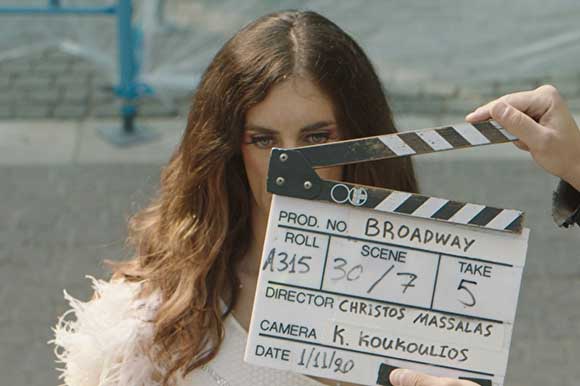 continued to operate with less than 100 spectators per screening.
continued to operate with less than 100 spectators per screening.
The domestic hit Miami Bici directed by Jesús del Cerro had 32,941 admissions from 9 to 15 March 2020, compared to 150,994 admissions from 2 to 8 March and 213,883 admissions from 24 February to 1 March 2020.
Romania declared a state of emergency on 16 March 2020.
Open air and drive-in screenings were allowed to operate starting 1 June 2020.
Cinemas in Bucharest re-opened on 1 September 2020 after a halt of five months, and were closed again from 7 to 15 October 2020, and then since 20 October 2020, as the incidence rate of Coronavirus infections exceeded 3 cases for 1,000 citizens.
Cinemas in other towns closed down one by one as the rate of infections increased and on 9 November 2020 Cinema City, the biggest cinema operator in Romania, announced that it was shutting down all its cinemas until further notice.
 Cineplexx România opened its fifth multiplex at Shopping City Târgu Mureș in September 2020.
Cineplexx România opened its fifth multiplex at Shopping City Târgu Mureș in September 2020.
Cinema City is the biggest cinema operator in Romania. It runs 26 multiplexes in 19 Romanian towns with 237 screens and 42,031 seats.
In 2020 general admissions were 2,504,210, according to Cinemagia.ro, but Forum Film Romania didn't disclose its admissions. Romanian films had 597,064 admissions, according to Cinemagia.ro.
The total gross was 11,280,243 EUR / 54,957,218 RON in 2020, while domestic films cashed in 2,521,874 / 12,286,542 RON.
In 2019 general admissions were 13,129,899 and the total gross was 56,464,483 EUR / 265,383,072 RON, according to official statistics issued by the Romanian Film Centre.
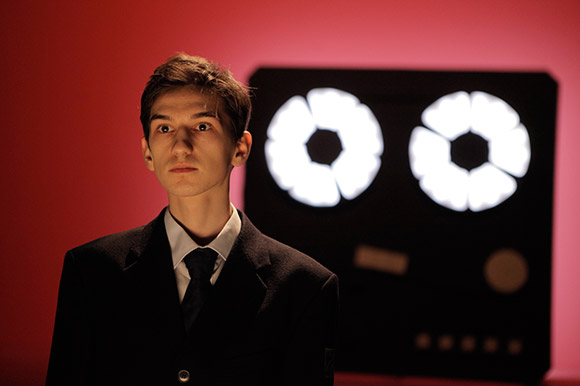 Admissions to domestic films increased dramatically from 389,172 in 2018 to 806,472 in 2019, while domestic films gross increased from 1.42 m EUR / 6,712,375 RON in 2018 to 3.13 m EUR / 14,733,843 in 2019, according to the Romanian Film Centre.
Admissions to domestic films increased dramatically from 389,172 in 2018 to 806,472 in 2019, while domestic films gross increased from 1.42 m EUR / 6,712,375 RON in 2018 to 3.13 m EUR / 14,733,843 in 2019, according to the Romanian Film Centre.
GRANTS AND NEW LEGISLATION
In May 2020 more than 230 Romanian film companies, 20 film associations and 35 filmmakers have come up with a plan for saving the local film industry from breakdown due to the COVID-19 pandemic. They appealed to the President, the Prime Minister and the Ministers of Finances, Economy and Culture to declare a Cultural Emergency Situation in Romania, which didn't happen.
According to the plan, the first measure to be taken was the immediate revival of the Cash Rebate scheme, which had been halted in November 2019. Then the immediate initiation of a Protection and Prevention Fund to balance the pandemic's effects (a fund estimated at 1.03 m EUR / 5 m RON for 2020), which would be managed by the Romanian Film Centre, as well as the initiation of a Backup Insurance Fund (estimated at 1.68 m EUR / 10 m RON) for accidental blockages during the shooting, which would be managed by the Ministry of Economy, Energy and Business Environment, and which should be open for domestic and international productions.
Romanian filmmakers were also proposing the elaboration of legislative conditions to require the VoD platforms which were active in Romania but didn’t have a Romanian branch (Netflix, HBO, Amazon) to contribute to the domestic production through the Film Fund managed by the Romanian Film Centre.
They also urged the political power to regulate the copyright legislation for authors and performing artists so as to allow the collection from monetised online distribution, and also to enhance the digitalisation process of administrative procedures in the film industry.
The Romanian Film Centre (CNC) was not involved in this initiative. Anca Mitran, the head of the CNC, told FNE that the Romanian Film Centre was not consulted and that it had a different opinion on the matter. “Our law is rigid and it doesn’t allow other funds additional to the production state support,” Anca Mitran said. She also said that “most of the requests from the filmmakers refer to measures of social protection, which is not among the CNC’s duties.”
However, the main priority for the Romanian CNC coincided with the main priority of the filmmakers: the immediate revival of the cash rebate scheme. The second priority for the CNC was to immediately put into force a law declaring that 4% of the money collected by the state from gambling companies should go to the Film Fund managed by the CNC.
The third priority of the CNC was the approval of the new Film Law, which would include some of the measures required by the filmmakers, including a contribution of 3% from the online distribution of films.
No further steps were made in 2020 regarding the new Film Law or the 4% of the money collected by the state from gambling companies, which by law should go to the Film Fund. Combined with the steep 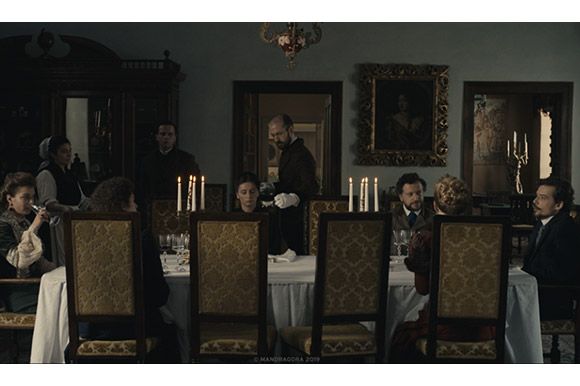 decrease of the percent from the cinema tickets, which also should go to the Film Fund, no grants contest was organised in 2020.
decrease of the percent from the cinema tickets, which also should go to the Film Fund, no grants contest was organised in 2020.
“In 2020 the Film Fund decreased by 50% from approximately 50 m RON to approximately 20 m RON, of which only 3 m RON are available right now”, film consultant Alex Trăilă said in an interview for Films in Frame in November 2020.
It was only in August 2020 when Romania officially decided to resume the cash rebate scheme, which had halted in 2019, by allotting 150 m EUR until 31 December 2023. However, the scheme still wasn't operative at the end of 2020 because the Ministry of Economy, Energy and Business Environment, which had taken over the management of the cash rebate scheme from the National Commission for Prognosis, failed to finish the paperwork, despite the appeals of the film professionals and the newly established Romanian Alliance of Film Producers (APF), presided by Iuliana Tarnovețchi and having Alex Trăilă as CEO.
Moreover, most of the projects which had already applied for cash rebate (21), were still waiting for the rebates at the end of 2020. From the 50 m EUR allotted by the Romanian Government, only 494,000 EUR were returned in two years since the scheme was launched.
Romania’s cash rebate scheme was launched on 8 October 2018. The state aid scheme offers a 35% cash rebate on qualified expenditure for international productions shooting in Romania. Additionally, productions explicitly promoting Romania, with a minimum local spend of 20% of the total budget of the production, can also apply for a rebate of 10%.
The CNC announced on 26 March 2020 that it would postpone various actions, including the signing of contracts for film production and the payment of the first and second tranches of film production grants. As a consequence, more than 150 Romanian professionals appealed to the director of the Romanian Film Centre (CNC) and the members of the administration council saying that the measures 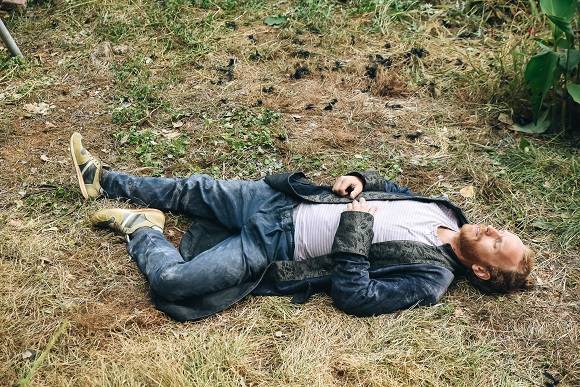 announced by the CNC would “effectively block” the operations that might be undertaken until the restrictions caused by COVID-19 are lifted.
announced by the CNC would “effectively block” the operations that might be undertaken until the restrictions caused by COVID-19 are lifted.
The Romanian Film Centre (CNC) distributed almost 3.9 m EUR / 18,832,000 RON as production grants for feature films, debut features, documentaries, animated films, short fiction films and thematic films. The grants announced on 26 May 2020 were the result of the second batch of 2019 grants, launched at the end of 2019.
Only four feature films received production funding, including projects by Călin Peter Netzer, Radu Muntean, Andrei Cohn and Adrian Sitaru. The biggest grant of 681,341 EUR / 3.3 m RON went to Călin Peter Netzer’s Familiar, produced by Parada Film.
Two debut features, five long and short documentaries, nine short fiction films, 10 long and short thematic films (the theme of the session was Science Fiction, Fantasy), and four long and short animated films (including Anca Damian’s new project Starseed, produced by Aparte Film) also received production funding.
Ten of the projects in all sections are international coproductions.
According to the law, the Romanian Film Centre should organise two batches of grants per year.
The annual state support for film industry was 7 m EUR / 37 m RON in 2020.
The annual state support for film industry was 11.7 m EUR in 2019, of which approximately 8.5 m EUR / 40 m RON were shared in two loans sessions in the selective scheme for development and production, while approximately 3.2 m EUR went to automatic support grants.
In December 2020 Bogdan Gheorghiu was named Minister of Culture in the new cabinet after the Parliamentary elections that took place on 6 December 2020. He was first named Minister of Culture in the 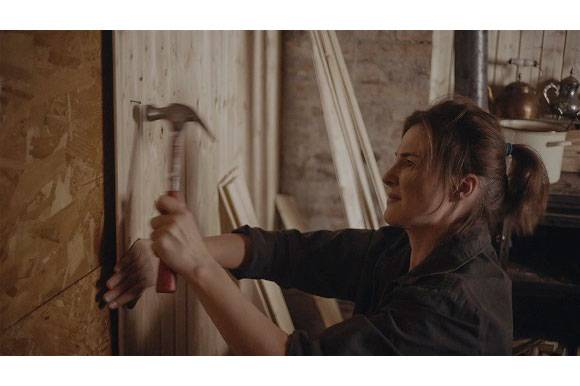 transitional cabinet led by the National Liberal Party leader Ludovic Orban in November 2019.
transitional cabinet led by the National Liberal Party leader Ludovic Orban in November 2019.
In December 2020 the European Film Promotion (EFP) welcomed the non-profit association Romanian Film Development (ADFR – Asociatia de Dezvoltare A Filmului Romanesc) as its 38th member organisation and successor to Romanian Film Promotion.
TV
Romanian channels with the best rating in prime time national in 2020 are Pro TV, Kanal D and Antena 1. Pro TV tops the daily average chart as well, followed by Antena 1 and Kanal D. They are followed by Romania TV, Antena 3, National TV, Prima TV and TVR 1.
The most popular domestic TV series in 2020 was again Las Fierbinți directed by Dragos Buliga and Gabriel Achim, and produced by MediaPro Pictures, whose 17th season was launched on Pro TV on 19 March 2020. The 18th season was shot in 2020 and it will be released in the spring of 2021. Las Fierbinți debuted in 2012.
Adrian Sârbu, former CEO of Central European Media Enterprises (CME) and the helmer of Pro TV, launched a new channel in Romania on 31 August 2020. The channel can be reached via cable and satellite at almost all the communication companies in Romania: Vodafone, Telekom, Orange, iNES and NextGen, as well as online on alephnews.ro, Facebook, Instagram and YouTube.
For mobile phones, the channel is formatted 9:16, similar as for Instagram. The target is 1.3 m people.
Aleph News is the first TV channel from Aleph Group to be launched. It will be followed by Aleph Business and Aleph Comedy, which received a license together with Aleph News in June 2020, as well as Aleph Harmony, Aleph Education and Smart TV, which is co-managed with the journalist Marius Tucă and which also received a license in June 2020.
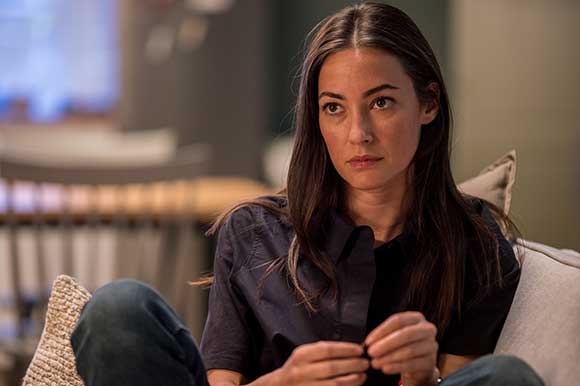 The eight-episode TV series RUXX directed by Iulia Rugină and Octav Gheorghe, and produced by HBO Europe, started shooting in Romania on 31 August 2020. Cristian Mungiu and Tudor Reu are providing production services through Mobra Films.
The eight-episode TV series RUXX directed by Iulia Rugină and Octav Gheorghe, and produced by HBO Europe, started shooting in Romania on 31 August 2020. Cristian Mungiu and Tudor Reu are providing production services through Mobra Films.
Written by Vera Ion, RUXX is a contemporary relationship drama focusing on the young generation living in a country (Romania) caught between the past and the future. The main character is Rux (Raluca Aprodu), a young woman who is trying to balance her professional career with her personal life.
The six-episode original HBO Europe series Tuff Money / Bani negri (pentru zile albe), which was shot in Romania in 2019, was released in all the HBO Europe territories on 22 November 2020. The miniseries written and directed by Daniel Sandu was produced by Cristian Mungiu’s Mobra Films.
The TV mini-series The Untouchable / Intangibilul by Adina Sădeanu and German-American Kirsten Peters, and the feature film Is It Really Happened? / S-a întâmplat by Maria Avram, were the winners of the second edition of the script contest Write a Screenplay for…, organised by Cristian Mungiu’s Asociatia Cinemascop together with HBO Europe. The contest was organised within the fourth edition of the American Independent Film Festival.
CONTACTS:
ROMANIAN FILM CENTRE
4-6, Dem. I. Dobrescu street, sector 1, Bucharest
Phone: +40 213 104 301
Fax: + 40 213 104 300
www.cnc.gov.ro
This email address is being protected from spambots. You need JavaScript enabled to view it.
THE MINISTRY OF CULTURE
22, Bulevardul Unirii, sector 3, Bucharest
Press office: +40 212 243 947
www.cultura.ro
This email address is being protected from spambots. You need JavaScript enabled to view it.
FILMMAKERS’S UNION (UCIN)
28-30 Mendeleev, sector 1, Bucharest
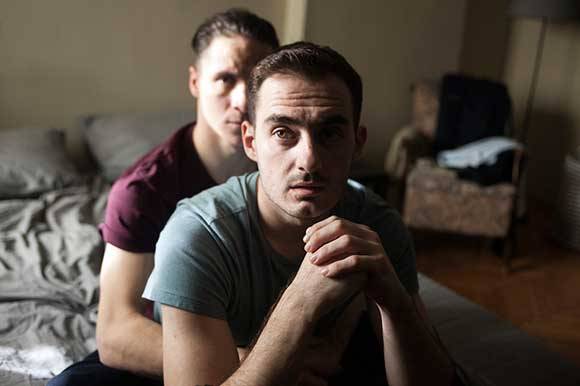 Phone: +40 213 168 0 83, +40 213 168 0 84
Phone: +40 213 168 0 83, +40 213 168 0 84
Fax: + 40 213 111 246
www.ucin.ro
This email address is being protected from spambots. You need JavaScript enabled to view it.
ROMANIAN FILM PRODUCERS’ ALLIANCE (APF)
23 Constantin Boșianu street,
sector 4, Bucharest 040505, Romania
www.apf-romania.ro
This email address is being protected from spambots. You need JavaScript enabled to view it.
ROMANIAN FILM PROMOTION
52 Popa Soare street, sector 2, Bucharest
Phone: + 40 213 266 480
Fax: + 40 213 260 268
www.romfilmpromotion.ro
This email address is being protected from spambots. You need JavaScript enabled to view it.
ROMANIAN FILM DEVELOPMENT (ADFR)
EFP representative
Alexandru Constantinescu Street
Sector 1
Bucharest, Romania
www.romfilmdevelopment.org
This email address is being protected from spambots. You need JavaScript enabled to view it.
ROMANIAN CULTURAL INSTITUTE
38 Aleea Alexandru
Sector 1, 011824
Bucharest, Romania
Phone: (+4) 031 71 00 627, (+4) 031 71 00 606
Fax: (+4) 031 71 00 607
www.icr.ro
This email address is being protected from spambots. You need JavaScript enabled to view it.
CREATIVE EUROPE MEDIADESK ROMANIA
57 Barbu Delavrancea street, et. 1, sector 1, Bucharest
Phone / Fax: +40 213 166 060, +40 213 166 061
www.media-romania.eu
This email address is being protected from spambots. You need JavaScript enabled to view it.
Report by Iulia Blaga (2021)
Sources: Romanian Film Centre - CNC, Cinemagia, Pagina de Media

